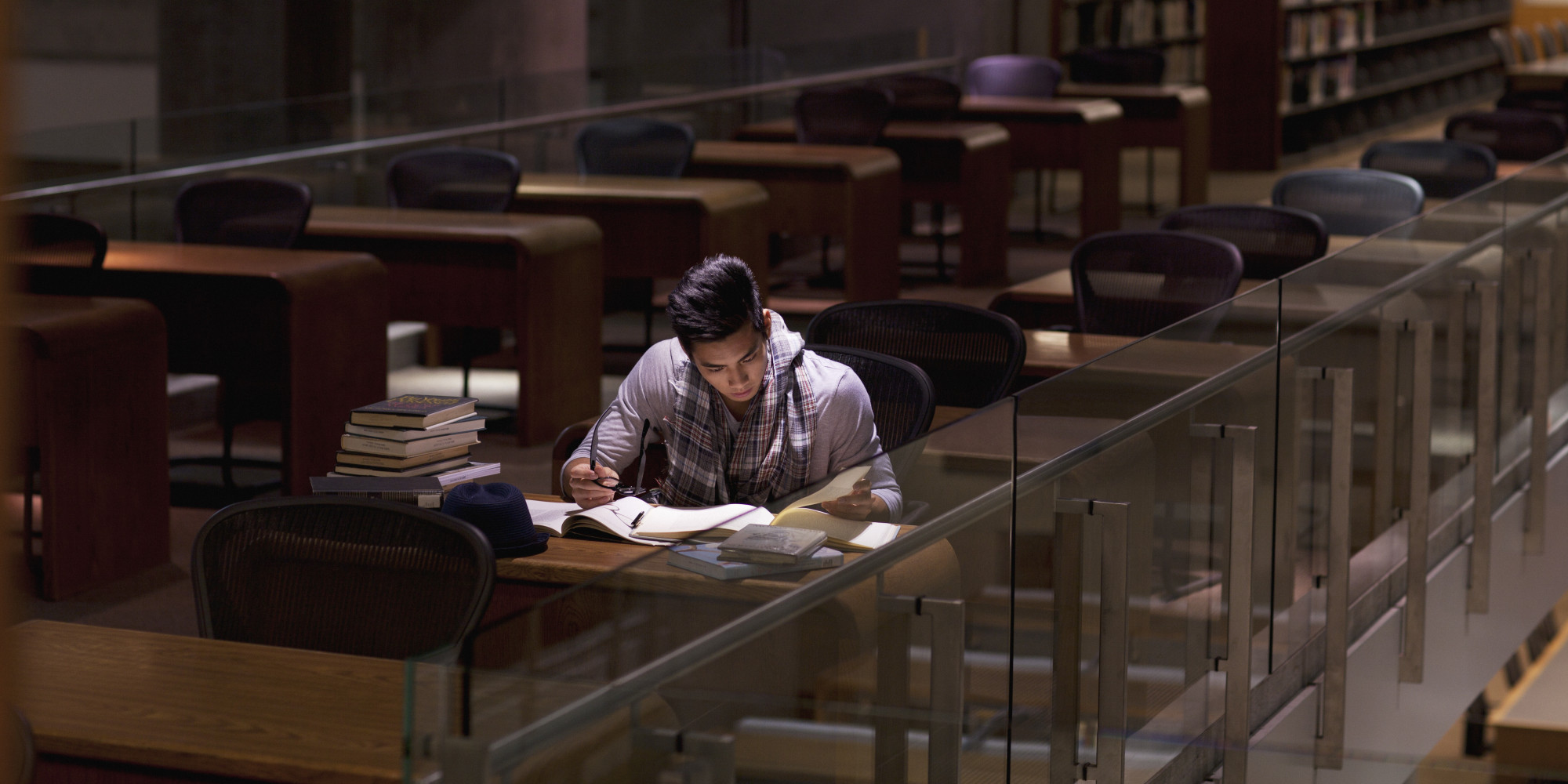It’s getting around to finals season again, so you’d better stake out your spot in the library now. It hit me last week. It’s early April, and finals are in less than a month. So far, I haven’t done anything to prepare for them besides watch “How I Met Your Mother” and go to house parties. So here I sit, at three o’clock in the morning in the library, my eyes falling shut, surrounded by the carcasses of empty coffee cups.
If you’re anything like me, you definitely have a lot of work coming up in the next few weeks. Your constant downpour of homework continues to fall, but now, on the horizon loom final exams, papers and presentations.
How did it come to this? And what can you do to catch up? The solution seems obvious, but slightly dangerous at the same time—don’t sleep.
I would challenge anyone to find a student on their campus who has not, at one point during their career, pulled an all-night study session just before an important test or when a huge paper is due. Advice columns, orientation leaders and professors tell students how bad all-nighters are for working, and they’re right. Still, the tried and true twenty-four-hour workday remains popular, especially this time of the year.
Advisors aren’t just parroting your mom’s advice, though. You really shouldn’t pull all-nighters often, or at all. Once you work past a certain point in the night, your productivity decreases, you feel more tired the next day and the quality of your work suffers.

Honestly, you’d be better off getting what little sleep you can and trying to wake up early. If finishing the assignment seems impossible, though, perhaps just email the professor and beg for mercy, so you can turn in your assignment late.
These are much better options compared to doing poorer quality work or messing up your sleep schedule for the next few days. If this sounds good to you, stop reading now.
Alright, you’re still reading.
You’re in a place where there is no time and no other options. If you’re all set to forgo sleep for a night, here are a few tips on how to help yourself work better and minimize your suffering the next day.
1. List It Out
First, charge into your working period with a clear list of what you need to get done. Ideally, write out a to-do list, focusing on the most important assignments or chapters to study. Don’t be the person who goes to the library, panics for an hour and gets nothing done (like I do).
Pick the first thing on the list and commit. It’s better to get one thing completely finished than to jump around and leave everything a jumbled mess. Trust me, I know from experience.
2. Hydrate Properly
After you figure out what you have to do, the next important thing is making sure that you can actually stay awake.
Of course, coffee is always my preferred method. Sometimes, energy drinks may be tempting as well. Honestly, though, tea is the best that you can do for yourself because it has less caffeine than coffee and is the least likely to make you jittery.
Even more important than what you use to stay awake, though, is making sure that you won’t feel like death the next day. Whatever you use to keep yourself burning the midnight oil, make sure that you stay hydrated at the same time.
For every cup of coffee, drink a cup of water as well. When you finally do crash, saying hydrated will ensure that you can wake up without feeling quite so awful, as if you had only binged on Red Bull and shots of espresso.
3. Buddy Up
Continuing on this regrettable, moonlit journey, when you’re hours deep into a study session, and you feel like you’re about to collapse, there’s nothing like having a friend, sticking with you through thick and thin, just as fucked as you are for the approaching final exam.

Studying alone can be productive, but it can also soon become lonely work, and you may feel overwhelmed. Knowing that you have someone there to support you, go over flashcards endlessly with you or even do cartwheels at four in the morning with you (I’ve seen it happen) can give you a much-needed break, or split up the monotony of staring at a book with no end in sight.
Make sure you find someone who you can work with, though. Too many times, I’ve found someone to study with, and we talked for hours instead. It’s always a fun time, but later, my grades have reflected the work that I did (or didn’t) end up doing.
4. Break It Down
The next point goes without saying, but I’ll say it anyway. Take breaks. Studies have shown that taking breaks from material around every forty-five minutes or so improves your retention and refocuses your attention.
Go for a walk, get some air or find a change of scene, just make sure that you don’t work yourself too hard.
Finally, there comes a time in the night when you may actually finish an assignment or essay. You may want to turn it in right away, throw it to the wind and be done with it. Still, if you have any time at all, and as an English major, I can’t stress this enough, it is immensely more beneficial to give yourself a break from the material, maybe take a nap, then edit or review it later.
Giving your mind a break from the material will allow you to get a better look at it later, with fresh eyes and a different perspective. Reviewing material more often, for shorter times, will improve your work more than huge cram sessions, even last minute.
5. The Finish Line
After all the assignments are finished, after the big test, crash. Give yourself more time than usual to catch up on your sleep debt, and while you’re at it, take a relaxing shower. You’ve earned it after such a long night.
My final piece of advice is simple: Prepare for the next day. Have faith in yourself. You’ve got a long way to go in college, but you also have a lot going for you. Life never stops, but neither will you.
















